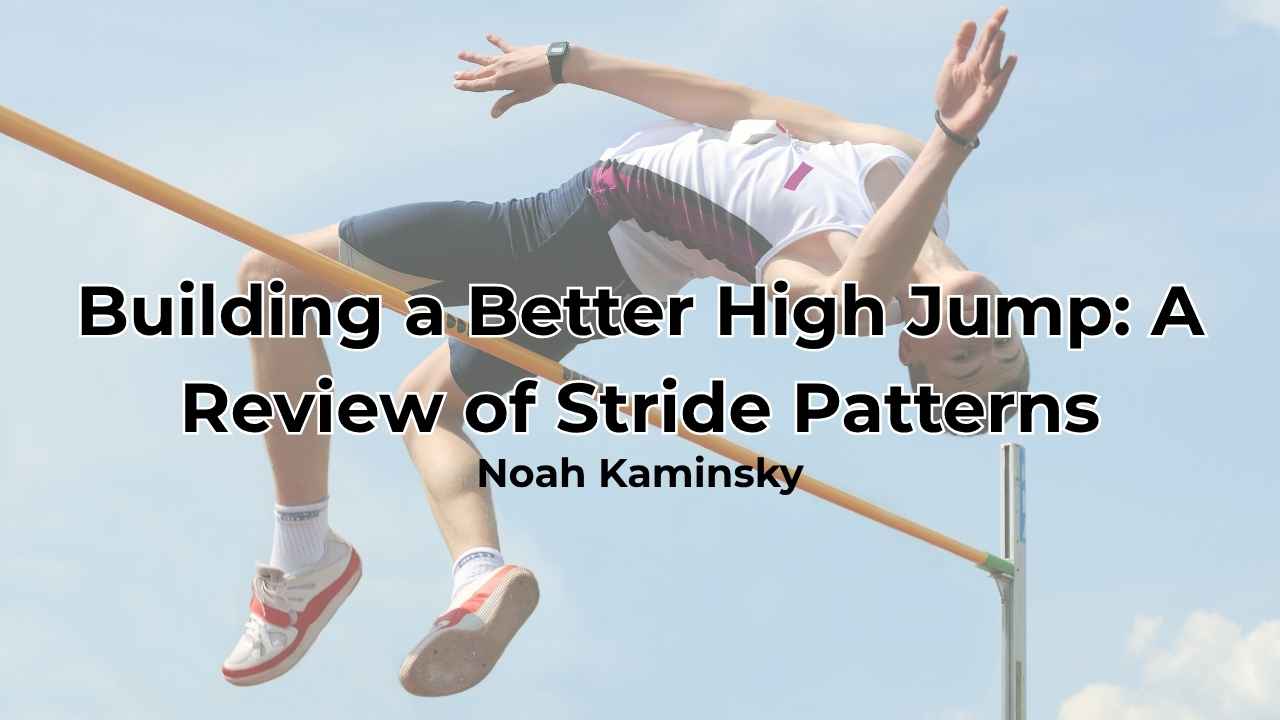[mashshare]
Coaches, can I tell you something? I love the summer. Yeah, I know that’s hardly earth-shattering news, but it is absolutely true. Summer is the reason I grind through the other months. It’s the hope of those perfect summer days that keeps me motivated through the rest of the year.
Here’s the shocking thing, though: I’m not talking about the weather. I’m talking about the handful of months that are ideal for working with athletes. Yes, having warm days helps people warm up faster, makes their joints feel better, and puts everyone in a better mood. But, to me, the best part of summer is that we can actually make real progress, since there are no upcoming competitions or practices.
The best part about summer is that we can actually make real progress, since athletes don’t have any upcoming competitions or practices, says @CarmenPata. Share on XDon’t get me wrong—I chose to work with athletes because I want to help them show off their talents during competition. After all, it’s not about being the best at exercising, but rather competing at the highest level possible. It feels like the college athletes I get to work with never have the opportunity to put in much time and work on their personal development.
Take football players, for example. They compete from mid-August to Thanksgiving, then have three weeks from Thanksgiving to finals week. After that, they are off on January “term break” from the week before Christmas until the last week of January. The only real training session we have with this group is the six weeks from the start of spring semester until spring break. After spring break, their spring practices start, and they go until the week before finals. After that it’s finally summer break, and we have a chance to really spend time developing their physical skills.
When we finally have the luxury of time without major interruptions, it’s important to take advantage of it. Here is the game plan that I use, based on everything I’ve learned over the past 17 years of running a summer program, to make it the most valuable time of the year.

Set the Schedule
Summer is a slow time for me, but it becomes busier for the athletes. While they might not have classes anymore, most are working a summer job. For many of the athletes I work with, summer is when they make the money they will live on for the school year. This is likely true for your athletes, too. Therefore, once you know when training sessions will be, let everyone know. If you make it clear to all the athletes that, if they want to work out with you, they need to be at the gym at these specific times, then they can set their schedules.
Depending on when you want to offer training sessions, however, you might have to readjust your programs. I understand that mornings seem to be a natural fit for training sessions, since the athletes can get a workout done and have the rest of the day to do whatever they want. If that is the only time you have available, by all means, take advantage of it.
When you change the purpose of early morning workouts from strength/power to volume, you set your athletes up for success, says @CarmenPata. Share on XMorning workouts do need a small change. One of our sport coaches really wants their team to lift at 6 a.m. year-round, believing that will ensure that players get to bed early. And for some, yes, they get to bed early enough to get 7-9 hours of sleep each night. The overwhelming majority, however, still get to bed well after midnight, and try to make it through workouts with coffee and pre-workout mixtures. So, what can we do with people who are tired and hungry, and whose joints aren’t loose yet? Power development? No. What about strength work? Not a chance. Volume? Yes, we can do that!
You see, when people are tired and hungry, their bodies are simply not ready to train for speed or strength. Sure, you can train those qualities, but just realize that you are working on their relative best. They might give great effort, lift with great intensity, and have crystal-clear goals and ambitions, but will they still be able to be at their best? To paraphrase the wise old saying, train slow and be slow, which is exactly what will happen when you train at less than your absolute best. When you change the purpose of early morning workouts from strength/power to volume, you set the athletes up for success.

Consider the Specific Demands of Summer Jobs
I live in northwest Wisconsin and, although we are in the Twin Cities Metro area, many of the local jobs revolve around physical labor. A number of the athletes who decide to stay in our city over the summer find themselves working a manual labor job. Since we are a D3 school and cannot give out any scholarships, many of our athletes have only the short duration of summer to make the money they need for the school year. Consequently, they purposely seek out the highest paying jobs, preferably ones that also have plenty of overtime. What jobs check those boxes? Construction. Factory shift work. Farm help. Landscaping. All of those jobs are noble and provide valuable services, but they do not set athletes up for success in their training.
Each of those aforementioned summer jobs have a few things in common. The laborers are on their feet all day. There are really narrow windows of time in which to eat and drink. There is no relief from the extreme heat and humidity. At the end of the workday, people are simply tired, hungry, and thirsty. Now you expect them to go work out?
Do yourself and your athletes a favor: If you have athletes working at physically challenging summer jobs, adjust your training, says @CarmenPata. Share on XOkay then, what are you going to do with them? Speed development? Strength development? Hypertrophy? Conditioning? I’ve tried all of those, and I’m sure at other times of the year we would have had fantastic results, but only one actually gave great results in summer: Training for hypertrophy with high volume loads.
You can train that way in the early morning, late at night, hungry, or tired. Sure, it isn’t the best way to go about it, but we need to get work done for the upcoming season. Do yourself and your athletes a favor: If you have athletes working at physically challenging jobs, adjust your training. Don’t expect the people working in the hot sun all day to be able to train at the same level as someone working at a desk in the air conditioning.

Remember: It’s Summer
I believe that there are certain rhythms and cycles in life. After the day, comes the night. But after the night, comes the day. After winter, comes spring, and then summer. The secret of training—and of life itself—is learning how to make the most out of every season.
In winter, everyone is bundled up and complaining about the weather. It’s too cold. There is too much snow. In spring, it’s too wet. The weather is warm one day and cold the next. In the fall, the weather gets colder, and it’s overcast. But summer? The skies are blue. The air is sweet. The grass is green. You cannot blame anyone for wanting to be outside.
There is nothing wrong with giving people what they want, while also giving them what they need. So, get people outside. Can you do your warm-ups outside? Yes. What about some med ball work? Of course. Think about it for a second. Is there anything you can do inside that you can’t do outside? Is it easy to take down, move, and set up a squat rack from your weight room to a spot outside? No. Can you do something else other than work in a squat rack though? Sure, you just have to get creative. If you can learn how to make the most out of your training program while letting your athletes enjoy all that summer has to offer, people will want to come to the training session.
In order to let your athletes enjoy all that summer has to offer, don’t plan a training session on Fridays. Give them three-day weekends in the summer, says @CarmenPata. Share on XBy the way, in order to let your athletes enjoy all that summer has to offer, do everyone a favor: Don’t plan on having a training session after Friday morning. Even better, make every weekend a three-day weekend in the summer. I found out the hard way that, when you plan and expect to have people work out on summer Fridays, you set yourself up for disappointment.
Yes, training is important. Yes, having high expectations is important. Don’t make your athletes choose between working out with you on a Friday afternoon and being with their friends. The athletes are making the most out of summer, and you should too.

Get Out of Your Own Head
I think the hardest part of the school year is that we have to dedicate so much time working on urgent matters that we end up neglecting some of what’s important. Think about it: When all the athletes are on campus and teams are in the middle of their competitive season, what are you doing day after day? We write all sorts of slogans and hashtags about it. Embrace the Grind. Enjoy the Suck. Rise and Grind. All of those slogans are a necessary part of our jobs. After all, in order to force bodies to adapt to the stress of training, we have to be consistent. And to win the battle of the mind, we need to be able to convince people that the process will be at a slow but constant pace. There is, however, a catch to all of this.
In order to ensure that our athletes make that slow and constant progress, we, as coaches, have to be consistently there as well. We have to be there to teach, to inspire, and to make the necessary subtle changes to the program. As important as being present is, it also costs us.
One of the things it costs us is the chance to spend time working on our program. Right? In order to really advance our program, we have to run into problems. When we have a list of questions that we’re stuck on, here is what happens first: We come up with a creative work-around. Sure, it might not be perfect, but whatever the work-around is, it allows us to keep moving forward. But for us to really come up with an answer, we need to get out of our own heads and ask someone else what they would do.
Spending time with another coach, a different athlete, or even in a new gym is one of the greatest ways I know to really grow as a professional, says @CarmenPata. Share on XGetting a chance to get out and have those face-to-face conversations with our peers is the ultimate gift of those precious weeks of summer. Spending time in the presence of another coach, different athletes, or even a new gym is one of the greatest ways I know to really grow as a professional. Looking at what others do, asking why they do it, and talking about how you could integrate those concepts into your own program is a valuable way to spend your time. You never know where one idea or conversation is going to take you, but you have to start with the first one. Therefore, when you get done reading this, make a list of people you can reach out to and then pick up the phone and see when they have time to talk.

Keep Learning
It feels like there are a lot of conversations that revolve around what the compensation should be for strength coaches. There is a ladder that starts somewhere around $30,000 and tops out around $725,000. Isn’t it wonderful that here in America we all have the opportunity to get on that ladder and climb as high as we want, all while getting paid for doing what we love to do? I know that many people—including myself—are not nearly as high on the ladder as we want to be, so here is a good thing to remember: We get paid for the value we bring to the marketplace.
It’s not about the time that we spend doing our jobs, but the value we bring while we do it. So, the question we need to ask is: Why does one person get paid $30,000 and someone else makes 10x that, bringing home $300,000? Are they working 10x the hours? Do they know 10x the information? Does one strength program produce 10x more results? Of course not.
If both programs get close to the same results and work about the same schedule, with about the same information, what is causing this large of a disparity in the coach’s pay? Well, like it or not, one person is bringing 10x more value to the athletics program. Now, don’t ask me what they do that is so different that they earn so much more, but it has to be something important, otherwise they wouldn’t be getting paid what they are.
What are the skills holding you back? Maybe you need to learn how to use Excel better. Maybe you need to learn how to do some fundraising. Maybe you need to learn how to be a better public speaker. Maybe even you need to be a better writer. Well then, there is no better time than the summer to work on all of these personal development skills.
Remember, we get paid for the value we bring to the market, says @CarmenPata. Share on XThe challenge, of course, is that it’s summertime. Our work schedules are lighter. The days are warm and pleasant. There are all sorts of things fighting for our attention. There are so many distractions that it is hard to have the discipline to spend time developing these skills when so many other people are spending the summer playing around.
Remember, we get paid for the value we bring to the market. Unless you change, things will keep going the way they always have. Living in northern Wisconsin, I’ve learned how to deal with all the seasons and get the most from them. Even though the weather is saying that it’s summer outside, professionally, it’s a little more like winter to me. With the lull in your work responsibilities, there is no better time to spend time learning and developing your marketable skills.
Putting It All Together
I began this article with an obvious statement: I love summer. That love of the summer months is something that we can all share. The comfortable weather and the seemingly endless options for entertainment somehow makes up for the short and cold days of winter.
Everything that I wrote works like a game plan for summer. This game plan lays out some ideas on what to do for your athletes to make sure they are set up for success. Know what the athletes are doing for their summer jobs, when they are lifting, and how they are managing the accumulated stress and heat of summer days. We need to remember that their summer training schedule cannot be the same as what they do during the school year.
The things I’ve learned and the people I’ve met through the downtime of summer have had the greatest impact on my personal and professional development, says @CarmenPata. Share on XBut summer is not all about the athletes and what they need. Summer is also about you as a coach. Getting away for a while, unplugging yourself from the grind of the school year, and spending some time with some much-needed self-care is one of the most important things you can do as a professional. Learning a new skill or making another contact is one of the best ways I’ve learned to grow as a person. As I’m closing in on two decades of full-time coaching experience, it has been the things I’ve learned and the people I’ve met through the downtime of summer that have had the greatest impact on my personal and professional development.
Let me close this piece by telling you something we tell our athletes: You are the one constant in your own life. Spend more time working on yourself than working on your job—it’s the only way to guarantee that you will become the mighty variable in your life. Being the mighty variable means that things would have gone very poorly if you had not been there to bring your talents to the situation. Keeping that in mind, help your athletes become better by making yourself better this summer.
Since you’re here…
…we have a small favor to ask. More people are reading SimpliFaster than ever, and each week we bring you compelling content from coaches, sport scientists, and physiotherapists who are devoted to building better athletes. Please take a moment to share the articles on social media, engage the authors with questions and comments below, and link to articles when appropriate if you have a blog or participate on forums of related topics. — SF
[mashshare]




